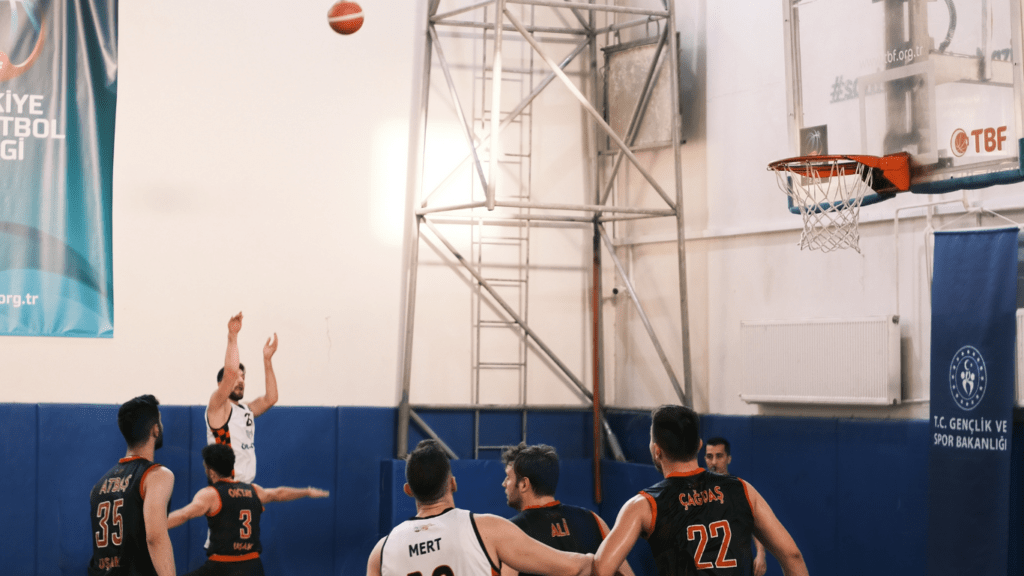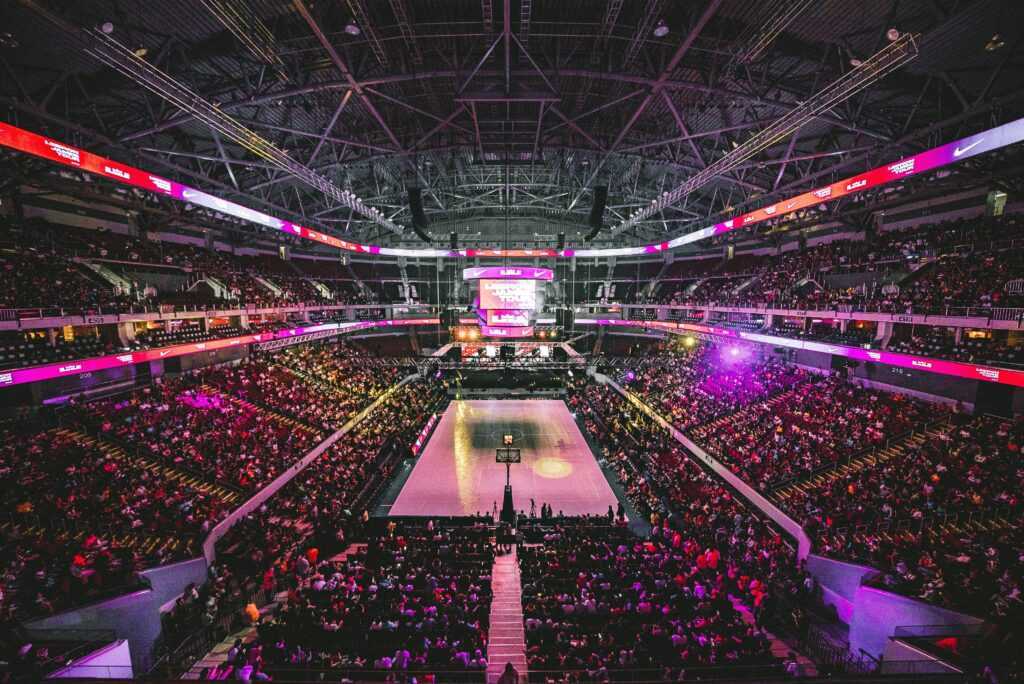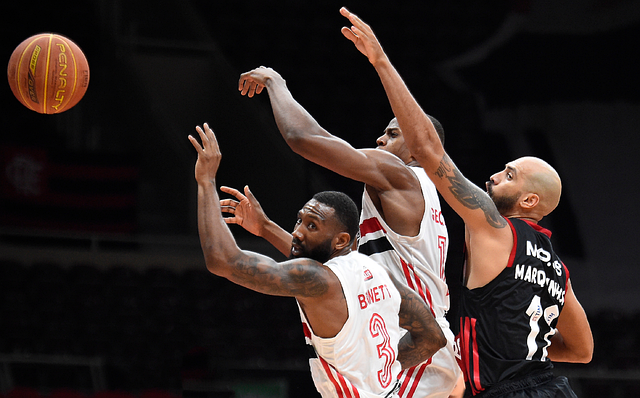The Rise of International Players in the NBA
The NBA’s landscape has dramatically changed with an influx of international talent. From pioneering athletes to today’s global superstars, these players shape the future of the league.
Historical Overview
International players began making an impact in the NBA during the late 20th century.
In 1984, Hakeem Olajuwon, a Nigerian-American, was selected as the first overall pick in the NBA Draft by the Houston Rockets. His success paved the way for other international stars.
By the 1990s, players like Vlade Divac from Serbia and Dražen Petrović from Croatia were making waves, showing that talent knows no borders.
The 2000s marked a significant shift, as more international players dominated the draft and earned All-Star selections. Yao Ming, from China, became an icon, both in the US and globally, after being drafted in 2002 by the Houston Rockets.
Additionally, Dirk Nowitzki from Germany, drafted in 1998, revolutionized the power forward position with his shooting ability. These players expanded the NBA’s reach into new markets, fostering a more inclusive and diverse league.
Notable Milestones
Several milestone events underscore the rise of international players in the NBA. In 1994, the Toronto Raptors and Vancouver Grizzlies joined the league, bringing the NBA to Canada. This expansion further showcased the league’s international aspirations.
In 2006, the NBA saw its first international MVP, Dirk Nowitzki. This accolade marked a pivotal moment, proving that international players could not only compete but excel at the highest level.
More recently, Giannis Antetokounmpo from Greece won back-to-back MVP awards in 2019 and 2020, solidifying the global nature of today’s NBA.
By 2020, international players from 41 different countries were represented in the NBA, highlighting the league’s global appeal. The 2020 NBA All-Star game featured nine international players, reflecting the diverse talent pool that now defines the league.
These milestones demonstrate the integration and influence of international players in the NBA, driving its evolution into a truly global competition.
Contributions on the Court

International players have significantly influenced the NBA’s playing style and competitive landscape.
Skill Set Diversity
Global players bring unique skill sets to the court. Hakeem Olajuwon, with his unmatched footwork and post moves, exemplified this diversity.
Dirk Nowitzki introduced a new level of shooting prowess for big men, becoming a seven-foot three-point threat. Yao Ming’s height and agility redefined the center position.
Giannis Antetokounmpo, with his versatility, impacts both ends of the floor, contributing in scoring, defense, and playmaking. Their varied skills challenge traditional roles and strategies in the NBA.
Breaking Records and Setting New Standards
- International players achieve noteworthy milestones, setting high standards for the league.
- Dirk Nowitzki’s MVP award in 2006 marked the first time an international player received such recognition.
- Giannis Antetokounmpo’s back-to-back MVP awards in 2019 and 2020 showcased continued international excellence.
- Luka Dončić, as a young superstar, is setting records for points and assists.
These achievements inspire future international talents and transform the NBA into a more dynamic, competitive league.
Cultural and Economic Impact
International players have left an indelible mark on the NBA, shaping its cultural and economic landscape in significant ways.
Influence on Global Fan Base
International players have expanded the NBA’s global fan base. For example, Yao Ming attracted millions of fans from China, boosting viewership and engagement.
Similarly, Dirk Nowitzki’s success drew more European fans to the league. These players bridge cultural gaps, making the NBA a global brand. By 2020, NBA games broadcasted in over 200 countries, reflecting this widespread appeal.
Market Expansion and Merchandising
International players drive market expansion and merchandising revenues. Merchandise sales for jerseys and memorabilia of stars like Giannis Antetokounmpo and Luka Dončić have surged.
The NBA capitalizes on this by creating localized merchandise for global markets. This approach has led to partnerships with international brands and increased sponsorship deals.
According to Forbes, NBA merchandise sales grew by 37% between 2015 and 2020, partly due to international players’ popularity.
Challenges Faced by International Players
International players in the NBA encounter several challenges that test their resilience and adaptability.
Adaptation and Cultural Differences
Adjusting to life in a new country poses significant challenges for international players. Cultural nuances, from dietary habits to daily routines, often differ widely.
For instance, Dirk Nowitzki had to familiarize himself with American cuisine and social customs upon joining the Dallas Mavericks.
Additionally, understanding American basketball culture, which includes:
- playing style
- coaching methods
- even fan expectations
requires substantial effort. Adapting to these cultural differences can impact performance on and off the court.
Language Barriers and Media Interaction
Language barriers significantly affect an international player’s experience in the NBA. Players like Yao Ming initially struggled with English, relying on interpreters for communication.
This language gap can complicate interactions with teammates, coaches, and media. Effective communication is vital for team dynamics and public relations.
Without proficient language skills, players may find it challenging to express themselves, understand strategic nuances, or engage with media, impacting their public image and professional growth.


